1819 Court reports
“My Lord, it is charged upon me that I have been criminally connected with public meetings at which there was a bloody dagger on a flag. Where I ask is the dagger? Where is the flag? I answer no-where but in the perverted imagination of the man who uttered it to excite the prejudice in the minds of the Jury against me. "
Masterly oratory from Henry Hunt the man known as Henry "Orator" Hunt and this at his trial following the Peterloo Massacre otherwise known as the Manchester Meeting. The authorities had sent in the Militia and savaged, injured or killed hundreds of people. Hunt, the speaker was arrested.
I felt highly privileged and nervous being invited in to a glass room at the Manchester Archives to see diaries and papers that were two hundred years old papers written by or pertaining to a man whose very presence could inspire thousands of ordinary people to walk miles to hear him speak about Parliamentary Reform and the Corn Laws. Who was he then, this man who spoke with such inspirational fervour?
I decided to approach this from a documentary evidence point of view, looking back at court reports, newspapers and records as opposed to a straightforward account of his life.
1822 Newspaper accounts
"You see a man before you, just released from prison standing before you the same man in mind, principle and bodily health. I hope I have done nothing I trust to lower your good opinion. I have no money, nor means of following a great continental traveller in scattering gold coins to those who honour him with applause.
We are called Radicals. I hope you are not ashamed of the name. A good Radical is one who objects to supporting the idle, the lazy and the corrupt.”
November 1822, dressed in blue coat and waistcoat and a tartan cloak embroidered with silver leaves, thus Henry Hunt spoke eloquently as he had just left gaol following his imprisonment after the Peterloo massacre.
Baptismal records
Born in Upavon, Wiltshire, less than 13 miles from Stonehenge, his Christening record entry states that he was Christened in 1773 and his parents were Thomas Hunt and Elizabeth.
Henry "Orator" Hunt was an English Radical who worked hard to radicalise the lower classes to seek reform. He was a wealthy farmer. The first mention I can find of his skills as a speaker is in 1809 when he addressed a Wiltshire meeting of two thousand landowners and at the end, his eloquence was such that he had won the votes of every one of the two thousand attendees except five men.
He only became known as the 'Orator' though in London in 1816-17 when his powers of oratory at public meetings soon made him a widely respected and popular speaker on parliamentary reform and the Corn Laws. Henry advocated annual parliaments and universal suffrage and he wanted these achieved through peaceful methods.
This popularity resulted in his attendance at the Manchester Meeting in 1819 which became known as The Peterloo Massacre when thousands of ordinary folk walked miles to hear him speak on topics such as voting and the Corn Laws. ( The Corn Laws had artificially increased the cost of bread in favour of the farmers. ) This topic is dealt with separately in my article on Wizzely. In a nutshell, when hundreds were injured and killed by the troops, Henry Hunt himself was arrested and convicted and spent two years in Ilchester Gaol, Somerset. The Manchester Meeting and his gaol term though merely served to increase his popularity. The nation was shocked by what had happened at a peaceful rally. Hunt had always advocated peaceful means. Public opinion started to change.
Released from gaol in 1822, by 1823 Henry was sharing platforms with "Princess" Olive, the supposed imposter claiming to be the daughter of the Duke of Cumberland, the king's brother. Hunt supported her claim to succession to the British throne. He also supported Home Rule for Ireland.
Hunt was obliged to remake his lost fortunes and had a variety of money making ventures including being a major rival to Turner and Warren in the manufacture of matchless shoe blacking and also making a breakfast drink out of corn. His political interests continued however and in 1830 he became MP for Preston. It is reported that his opponent's father the Earl of Derby, Lord Stanley wreaked vengeance on the people of Preston for not electing his son, by imposing harsh restrictions on them in the town and consequently, Hunt was defeated in favour of Stanley's son at the next election in 1833. Edward Stanley went on to be Prime Minister in 1852.
While in Parliament, in 1832 he presented a petition for women's suffrage and supported other petitions for women’s votes. He also petitioned both Houses of Parliament to abolish military and naval flogging. At a debate in which he presided speakers reprobated the brutal custom, and resolutions were passed to be presented to the Lords and Commons to abolish or lessen the custom.
Henry Hunt died in 1835, but he was man ahead of his time. His advocacy of voting for all including women and the working classes was unheard of. A farmer opposed to The Corn laws which raised the prices of bread in favour of famers selling their grain was seen as preposterous. His support for Irish rule was seen as anarchy. Much of what he believed in is considered as normal life today, two hundred years on. His memorial in Manchester has long since crumbled and been demolished. But the memory of this stirring orator who could inspire crowds of people lives on.
Let's hope that the Peterloo bi-centenary will renew interest in this wonderful character, a remarkable man.


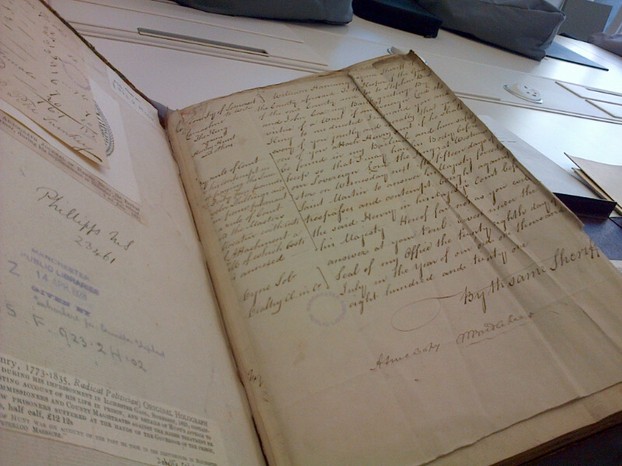
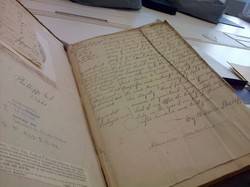

 Blarney Castle and Gardens, County Corkon 06/01/2023
Blarney Castle and Gardens, County Corkon 06/01/2023
 An Cóbh, Corcaigh, Eireon 05/29/2023
An Cóbh, Corcaigh, Eireon 05/29/2023
 Dublin ; The Book of Kellson 04/04/2023
Dublin ; The Book of Kellson 04/04/2023
 The Bee Tree Community CIC;- an online support communityon 08/24/2022
The Bee Tree Community CIC;- an online support communityon 08/24/2022
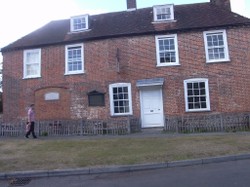
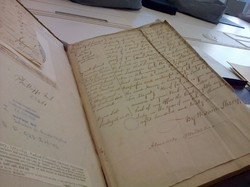
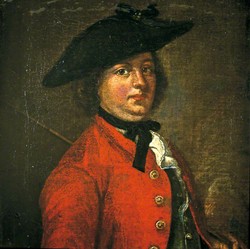
Comments
Peterloo has been released and is reportedly an excellent film. Go to see it to give tribute to the Fallen.
The film Peterloo is due for release and I hope it is faithful to the events and truth of the Peterloo massacre in 1819.
The Hunt breakfast drink wasn't a lasting success and wouldn't be found nowadays.
Other than Christopher Eccleston ( who was DR Who ?) , I don't know who is on the film Peterloo. But I will definitely be seeing it. It comes out a year before the bicentenary .
Princess Olive; If I knew more I would love to do that one. What a tale to tell.
Veronica, What happened to the Hunt breakfast drink? Who played Henry Hunt in the film for the Peterloo bicentennial? Will you be writing about Princess Olive?
An update;-
This summer I toured the south of England and by chance just happened to find myself in Upavon, the actual village that Henry Hunt was born in. I was surprised at the coincidence of me writing the above account and then finding myself there.
A special moment.
Thank you Kaja. Imagine a wealthy man in England's Parliament advocating votes for women as far back as 1830's. It was unheard of ! I think he should be remembered.
Great story. I enjoyed reading it. History is one of my favorites.
There is going to be a film made about Peterloo for the 200th anniversary, I am interested to know who will be playing Henry Hunt. He was certainly a man ahead of his time.
I am going to have to go back and read your previous article, but this one paints a picture of an interesting character.
Yes, one of the arts taught me in my journalism diploma is to follow up points of interest in a story to make another one. I had never heard of Princess Olive, but she seems a subject who would fascinate many readers.